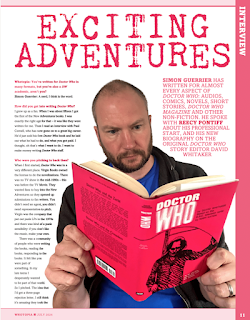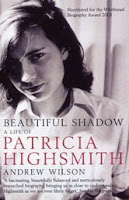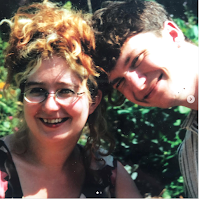LXXIThe Moving Finger writes; and, having writ,
Moves on: nor all thy Piety nor Wit
Shall lure it back to cancel half a line,
Nor all they Tears wash out a Word of it. (p. 92)
Or, to put it another way, you can’t rewrite history — not one line.
In 1859, a reclusive, privately wealthy scholar called Edward Fitzgerald anonymously published 250 copies of a pamphlet containing his translation in English of 75 four-line rhyming poems, a form known as “rubāʿī”, attributed to a Persian poet, Omar Khayyám, in the 11th century. No one paid much attention to this pamphlet until, in 1861, the lawyer and literary scholar Whitley Stokes happened across a stack of copies at a bookstall near Leicester Square, where the original price of five shillings had been reduced to a penny.
Having bought one, Stokes showed it to his friends, including the poets Algernon Charles Swinburne and Dante Gabriel Rossetti, who duly bought their own copies. Swinburne’s account of what then happened (apparently from p. 188, vol 6, of The Swinburne Letters) is quoted in my copy of the Rubáiyát:
“Next day we thought we might get some more for presents among our friends, but the man at the stall asked twopence! Rossetti expostulated with him in terms of such humorously indignant remonstrance as none but he could ever have commanded. We took a few, and left him. In a week or two, if I am not much mistaken, the remaining copies were sold at a guinea.” (p. x)
Word gradually caught on. Fitzgerald produced an expanded, second edition containing 110 of the four-line poems in 1868, and further revised editions, each of 101 of these quatrains, in 1872, 1879 and 1889 — the latter published after Fitzgerald’s death.
By the end of the 19th century, “more than two millions copies have been sold [of the Rubaiyat] in over two hundred editions” (according to a facsimile of the first edition published c. 1900). It became “one of the most admired works of Victorian literature” and “in the first half of the 20th century was arguably the most influential [long poem] in the English language”, according to Melvyn Bragg, introducing a 2014 episode of In Our Time on The Rubaiyat of Omar Khayyam.
Hector Hugh Munro adopted the pen-name “Saki” after the cup-bearer in the Rubaiyat. Various dining clubs were established in honour of Khayyam: writers JM Barrie, Arthur Conan-Doyle, Thomas Hardy and AE Housman were all members of one. Housman’s friend, the mathematician John Edensor Littlewood bought a slim, pocket-sized volume containing both the first and forth editions as a present for my great aunt on her 11th birthday in 1938, which is the copy I’ve just read.In 1961, David Whitaker drew from this book when he wrote the BBC children’s serial Garry Halliday and the Secret of Omar Khayyam, broadcast at Saturday teatimes over seven weeks in early 1962. I’ll dig into that more when I write up my notes for the corresponding entry in my Garry Halliday episode guide. But for now, it’s enough to recognise that this little book was still resonant a hundred years after Whitley Stokes first discovered it on that bookstall.
But why was this slim book of poems such a massive hit in the late 19th and early 20th century?
It’s effectively a day in the life; the opening rubāʿī describes the start of new day in the early part of the year, the dawn sun touching the Sultan’s Turret in an unnamed Persian town, a cock crowing and — in subsequent quatrains — a group of people waiting eagerly for the tavern to open. The poet wanders this town, enjoying a cup of wine and musing on the nature of existence.
XLVII
And if the Wine you drink, the Lip you press,
End in the Nothing all Things end in—Yes—
Then fancy while Thou art, Thou art but what
Thou shalt be—Nothing—Thou shalt not be less.
(First edition, p. 56)
XXIV
Ah, make the most of what ye may spend,
Before we too into the Dust descend;
Dust into Dust, and under Dust to lie
Sans Wine, sans Song, sans Singer, and—sans End!
(Fourth edition, p, 76)
There was, at the time Fitzgerald published his first edition, a long-standing interest in Persian culture and the wider Orient, not least because of British imperial interests across the east and into India. The Persian language was used by the East India Company in provincial governments and courts until the 1830s. Sir William Jones’s various translations and his A grammar of the Persian language (1771) influenced the generations that followed. For example, the Jones translation of the 8th century Mu’allaqat inspired Alfred Tennyson to write his Locksley Hall (1835). Tennyson was, in turn, a friend of Edward Fitzgerald.
That context is useful but doesn’t explain the particular appeal of the Rubaiyat. What made this text stand out?
Note that in the two quatrains quoted above there’s no mention of an afterlife. The In Our Time episode on the Rubaiyat and Sadeq Saba in his 2010 documentary The Genius of Omar Khayyam explore this issue of godlessness. Fitzgerald published his first edition in 1859, the same year that Charles Darwin published On the Origin of Species, at a time when there was already much interest in “long time” — ancient, geological history stretching back millions and billions of years, far further than accounted for by a literal reading of the Bible. These ideas were controversial. On In Our Time, the suggestion is made that Fitzgerald couldn’t have published a work of his own (supposed) agnostic, perhaps even atheistic, musings without inviting scandal; Khayyam enabled him to do so at a safe remove. Readers could also engage in such ideas without breaking from the Church.
I can see, too, that there’s an appeal in the world conjured here: a rich culture different from that of the late Victorians, and seemingly more free. The In Our Time episode talks about the wider allure of Orientalism to the late Victorians, notably in the sensuous hedonism of the harem. I don’t think there’s much licentiousness in the Rubaiyat, beyond the idea that the poet says to drink and enjoy wine while we can. But there’s an allure in any different, rich culture in which we can escape and be immersed — like the appeal of Middle Earth or sci-fi or Regency novels. Once entranced, there’s always more to steep yourself in: the history and rules, the minutiae, the power politics in wrangling among other true believers. (The same might be true of the football terrace, too.)
There are often good reasons why someone actively seeks such escape. In Our Time cites Fitzgerald’s close friendship with Professor Edward Byles Cowell; the first edition is in part a translation of the Persian quatrains Cowell found while in Calcutta and sent to Fitzgerald, their correspondence apparently suggestive of how keenly the two men felt their separation. We can read something into this, just as readers of the Rubaiyat could read their own hopes and desires into the tantalising world it conjured. It’s a frame in which things are possible that would not be dared outside.
But maybe the appeal isn’t nearly so immersive. This kind of “enjoy life while you can” stuff is not a world away from “live, laugh love”. That such aphorisms here derive from some ancient, eastern scholar confers authenticity and value to what a cynic might otherwise see as greetings-card wisdom. And there’s also something haunting in this voice from what’s now almost a thousand years ago exhorting us to enjoy our existence and to live while we can.
In fact, we’re not sure Omar Khayyam really said the things attributed to him. It’s not just that many of the surviving quatrains in Persian give no indication of author, but Fitzgerald took a very free hand in translating the texts he had to hand, reordering and rewording them, grafting in bits that sound like the Book of Common Prayer (compare the last quatrain I quoted to the famous “dust to dust...”) and Shakespeare. That might not resonate so much with us now as it did with late Victorian readers. Moulded in their own language, no wonder they felt that this text out of the long past spoke to them so directly.
The real Omar Khayyam — full name Ghiyāth al-Dīn Abū al-Fatḥ ʿUmar ibn Ibrāhīm Nīsābūrī — is no less fascinating than this mythic version.
“Better known for his poetry, it often surprises many to learn that Omar Khayyam (1048-1131) was one of the greatest of all medieval mathematicians,” says Jim Al-Khalili in his book Pathfinders — The Golden Age of Arabic Science (2010). He cites Khayyam’s work on cubic equations in Treatise on Demonstration of Problems of Algebra, including “both algebraic and geometric methods for solving them systematically and elegantly, using the method of conical sections (which involves slicing through a cone at different angles to produce different types of curves such as circles, ellipses, parabolas and hyperbolas)” (p. 122).
I’m familiar with conic sections being used to make sense or orbits, whether those of celestial bodies or the rockets and craft trying to reach them, and wonder how much of Khayyam survives in the mechanics of the space age.
Khayyam was also part of a team that, with cutting-edge technology such as the astrolabe, calculated the length of the year with much greater accuracy than the contemporary Gregorian model; indeed, the Jalali calendar devised by Khayyam and his colleagues was still in use into the 20th century. In addition, Al-Khalili quotes a long passage from one of Khayyam’s other surviving works, more reliably attributed to him than his poetry, extolling the virtues of seeking the truth — and acknowledging that people will mock you for doing so. It’s quoted at length because it expresses a sentiment that Al-Khalili recognises now, the voice of the exasperated scientist ringing down to us through the ages.
I can see why this little book of poetry, written by an influential mathematician, would have appealed to JE Littlewood, and why he chose it as a gift for an 11 year-old. It bears a simple, four-word inscription, “Ann, from Uncle John”, and the date. But what he was giving her was a guide to life, and a frame in which unconventional ideas and conversations are possible. And that was important because, as the inscription shows, he’d not yet admitted what was known within the family: that Ann was his daughter.But perhaps I’m just the latest in a long line to read into this little book what I want to see.
































